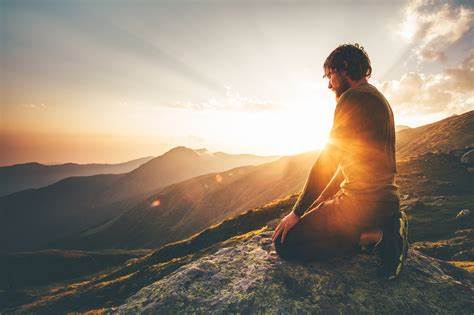
The world is in turmoil. Trying to make sense of it has started to become an everyday challenge. Most of us are constantly battling a mind that is crowded with “what ifs” and worries, and it’s really messing with our ability to get stuff done.
One of the most influential books of all time, Viktor Frankl’s Man’s Search For Meaning inspired the title of this article. The inspiring 1946 book chronicles Frankl’s experiences as a prisoner in Nazi concentration camps during World War II. He describes how he survived by identifying a positive life purpose and immersively visualising that outcome.
In the post-pandemic world, we have come face-to-face with the impermanence of life. Troubling times demand that we think clearly about the best course for our life, our work, and our family. We can’t afford to be bombarded by a swarm of half-formed anxieties when everything starts getting out of control, all at once, and one becomes overwhelmed trying to deal with things without losing one’s sanity
According to the Deloitte Global 2021 Millennial and Gen Z Survey, both generations report high stress and anxiety levels—and remain hesitant about expressing their stress and anxiety to their peers or employers. In fact, Gen Z is poised to become the most isolated generation of all time.
It needs a lot of awareness and skill to remain conscious and vigilant, to immediately notice when, where and why our energy drops, to stop the fall, and to use practises to raise our energy before it becomes too low, so that we can continue to remain joyful and enjoy life to the fullest. The ancients developed practical ways to attain this state. They call it Yoga.
The wisdom of the ancients has become more relevant in today’s stressful times. The third millennium has come upon us with its unique challenges. However, becoming a Millennial Yogi is not simply joining a yoga class and becoming proficient in a few asanas. Nowadays, people assume the title of yogi because they practise yoga. However, ancient scriptures go into detail about the qualities of a true yogi.
The Bhagavad Gita explains that a yogi is someone who has conquered the senses, isn’t attracted by sensual pleasures, takes both sorrow and pleasure in one’s stride, and is free from attachments, fear, and anger. Mental equipoise is his hallmark. The Gita calls such a person a “Sthitaprajna,” succinctly encapsulating this as, “when all beings sleep, the yogi remains awake; when the world awakens, the yogi sleeps’.
Our world is spinning out of control. We will burn out if we keep running at the top gear all the time. We need to learn to stop and enjoy the moment. The top mental health issues reported today are anxiety, depression, and eating disorders. Nowadays, many of us don’t get enough sleep. We rush through meals, hardly talk to loved ones and often hurry through exercise routines.
It is important that we seek meaning in what we do. Today, Gen Zs are looking for certainty in an uncertain world. Post pandemic, the millennials are reluctant to return to a full-time job. The great resignation has created a bleak scenario for the future of work.
So, how can we adapt these timeless teachings of the ancients for the millennials and GenZs?
Our capacity to enjoy life is directly proportional to how happy we are. Our moods dictate the quality of our sense of humour. The happier we are, the easier it is for us to laugh. How happy we feel entirely depends upon our levels of enthusiasm and eagerness, and these depend upon our energy, vitality, or life force. One can incorporate simple practices into one’s daily routine to raise one’s energy. The ancients gave importance to regular meditation, a healthy diet, adequate exercise and sufficient sleep.
We are a constantly evolving Mind-Body-Spirit combination of everything that we absorb. The world is continually bombarding us with information. Everything affects us. Moment by moment, we ingest information and we keep changing constantly. We change after reading a book or watching a movie. We change after meeting someone, even for an instant. The food we eat has an effect on our moods. We are incessantly imbibing thoughts, opinions, ideas and words.
It is extremely important to select what goes into us. Not just the food we eat, but the books we read, the movies and television shows we watch, and the people we spend time with. Even the places we visit. All these things can change us in subtle ways.
We need to choose wisely. It’s important to decide who we want to become and start working on whether the company we keep is taking us towards that. We are the sum total of the handful of people around whom we spend most of our time.
Places where people meditate have a powerful vibe and make us peaceful, whereas staying long at places where too much hedonistic partying or violent events have occurred can leave us spent, unhappy and agitated.
However, in today’s uncertain state of the world, we need to find ways to create structures where we can find mutual support and thrive as communities. Remaining alone and aloof during the pandemic has led to a slew of mental health issues. Collective meditation, playing team sports and volunteering for community service activities at old age homes, or giving children free coaching are activities that are sure to give our (anxious) lives the meaning we all crave fo